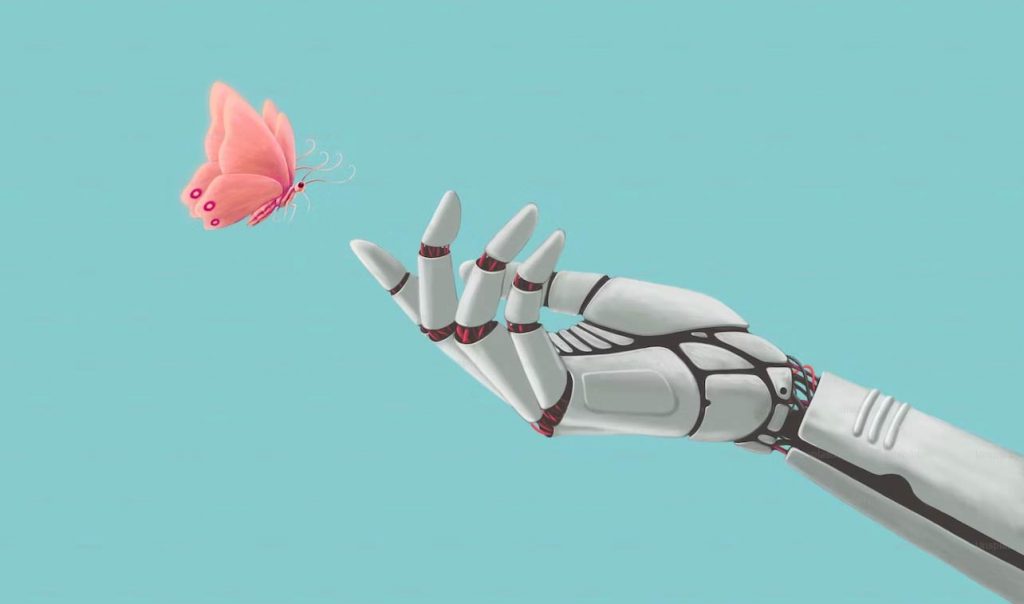
10 Top HR Technology Trends to Revamp your 2025 Strategy
Human resource technology, also known as HR tech, has undergone a remarkable transformation in recent years, driven by the ever-changing trends of the modern workplace. This year, the HR landscape is poised for another wave of innovation, with a focus on enhancing employee experience, streamlining HR processes, and leveraging data-driven insights to make informed decisions. In this post, we’ll talk about the 10 top HR technology trends for 2025 and how your organization can benefit from them.

I. What Is Human Resources Technology?
Human Resources technology (HR tech) refers to software and digital tools designed to automate, streamline, and improve HR functions such as recruitment, payroll, employee management, benefits administration, performance tracking, training, and workforce analytics. It plays a crucial role in optimizing workforce operations, ensuring compliance, and enhancing the overall employee experience.
So, what is the role of technology in human resource management? HR technology simplifies complex HR processes, allowing organizations to save time, reduce errors, and improve decision-making in talent management. It enables HR teams to focus on strategic initiatives such as employee engagement, workforce planning, and career development.
Additionally, modern HR tech platforms seamlessly integrate with other business software, including accounting, communication, and project management tools, ensuring smooth and efficient operations across departments.
II. The Current HR Technology Trends Scenario
The HR tech landscape is constantly evolving, and new technology tools for the workplace are emerging all the time. Companies that are able to adopt these new technologies will be able to gain a competitive advantage in the hiring, onboarding, and retention of top talent.
One of the most significant HR technology trends in 2025 is the rise of artificial intelligence (AI). AI is being used to automate a variety of HR tasks, such as screening resumes, conducting interviews, and providing employee training. AI is also being used to personalize the employee experience, such as by providing employees with tailored recommendations for training and development opportunities.
Another important 2025 HR technology trend is the increasing use of data and analytics. Companies are collecting more data about their employees than ever before, and they are using this data to make better decisions about hiring, training, and development. Data and analytics can also be used to identify and address potential problems, such as employee turnover and harassment.
III. Top Trends in HR Technology in 2025
Considering the current human resources scenario, we see that many previous trends in HR technology are no longer trends, but have come to stay and will continue evolving. See below the most important HR technology trends that we anticipate for 2025:
- Skills-based hiring
- Personalized employee experience
- Remote and hybrid work model
- Employee wellness and mental health
- Soft-skills development
- Cybersecurity strengthened
- Social media and brand awareness
- Space management for human resources
- Artificial intelligence and machine learning
- Data-driven decision making
1. Skills-Based Hiring: HR Technology Trend
Traditional hiring methods are no longer keeping up with the pace of change in the workforce. In 2025, we expect to see a shift to skills-based hiring, which focuses on identifying and hiring candidates based on their skills and experience, rather than their educational background or job title. This approach allows organizations to find talent with practical abilities that align with business needs, reducing hiring bias and increasing workforce diversity.
HR tech can help companies promote recruiting events and engage with participants, assess candidate skills and make skills-based hiring decisions. AI-powered tools can conduct skill-based assessments, analyze candidate potential, and streamline the recruitment process, ensuring a better match between employers and employees.
2. Personalized Employee Experience (EX)
Employee experience (EX) is no longer a buzzword; it's a critical business imperative. Companies that prioritize EX are more likely to attract and retain top talent, boost productivity, and improve customer satisfaction. Organizations that focus on personalizing career growth, work-life balance, and benefits will create a more engaged workforce.
HR technology can help companies personalize EX by providing tailored employee onboarding, training and development opportunities, as well as by fostering a culture of recognition and appreciation. AI-driven platforms can offer custom learning paths, real-time feedback, and tailored benefits packages that cater to individual employee needs and aspirations.

3. Remote and Hybrid Work Model: HR Technology Trend
Remote and hybrid work models continue to evolve. In 2025, companies will further invest in technologies that support seamless remote collaboration, virtual meetings, and hybrid team management. Organizations that optimize their hybrid strategies will retain talent and increase employee satisfaction.
HR tech solutions help monitor productivity, enhance communication, and optimize workspaces for hybrid teams. Tools like AI-powered scheduling assistants, virtual whiteboards, and integrated HR platforms make managing hybrid teams more efficient and ensure smooth workflow transitions between remote and in-office settings.
4. Employee Wellness and Mental Health
Employee wellness has transitioned from an optional benefit to a fundamental component of workplace strategy. A survey by the American Psychological Association (APA) shows that over 80% of employees prioritize mental health benefits when choosing an employer. Organizations that invest in wellness initiatives experience higher employee retention, increased job satisfaction, and greater overall productivity.
In 2025, we expect to see a continued focus on employee well-being, with companies investing in programs and tools that promote physical, mental, and emotional health. This approach not only helps with employee retention, but also increases overall productivity.HR technology can help companies promote and deliver corporate events and other wellness programs to employees in a personalized and accessible way.

5. Soft Skills Development HR Technology
In a world driven by automation, soft skills like communication, leadership, and adaptability are more crucial than ever. Companies are recognizing that technical skills alone are not enough to thrive in today’s dynamic work environments, and they are investing in leadership training and emotional intelligence development.
HR tech platforms offer e-learning programs, AI-driven coaching, and virtual mentorships to develop employees’ soft skills and enhance teamwork. Gamification in learning modules and AI-based career coaching are helping employees refine their interpersonal skills and navigate complex workplace interactions more effectively.
6. Cybersecurity Strengthened: HR Tech’s Growing Role
As digital transformation accelerates and remote work becomes standard, organizations are strengthening cybersecurity. In this shift, HR plays a growing role. According to IBM, the average cost of a data breach in the U.S. reached $4.45 million in 2023. As a result, businesses are taking data protection more seriously—especially when it comes to employee information.
Now, forward-thinking HR teams prioritize security. They work closely with IT to establish clear data protection policies. They also train their teams to recognize and respond to potential threats. Furthermore, HR leads company-wide training on cybersecurity to build a culture of awareness and responsibility. Ultimately, this proactive approach not only protects individuals but also builds trust and strengthens organizational resilience.

7. Social Media and Brand Awareness: HR Tech Trend
Being visible on social media is key for attracting top talent and therefore ranks in the main human resource technology trends. Companies are increasingly using social platforms to boost employer branding, recruit candidates, and engage employees. Having a strong online presence allows businesses to showcase their workplace culture and attract candidates who align with their values.
HR tech integrates with LinkedIn, TikTok, and other networks to streamline recruitment and employer branding efforts. AI-powered social listening tools help companies track brand perception and engagement, allowing them to refine their strategies and create content that resonates with their target audience.
8. Space Management Tech for Human Resources
Space management is expected to be one of the significant human resource technology trends for 2025 as the interaction between people and their working environments is crucial for organizations.
Given that different employees need different types of spaces based on their job roles and tasks, there is a rising demand for HR technologies that aid in efficiently allocating and managing these spaces. For instance, while a salesperson would require a meeting room to interact with clients, a technician may require a lab or technical workspace.
HR technology solutions for space management can greatly aid in this respect by offering features like real-time visibility of space availability, allowing online space and resource booking, and providing analytics to manage the workspace better.
By doing so, HR tech can ensure that the employees have access to suitable workspaces as and when required. This reduces wastage of resources and contributes to increased productivity. As the staff members can perform their tasks without hindrance due to space constraints. This interconnectedness of space and people management is driving its adoption as an HR technology trend for the future.

9. Artificial Intelligence (AI) and Machine Learning (ML)
AI and ML are transforming HR operations. In 2025, expect more AI-powered chatbots, ML-driven workforce analytics, and predictive hiring models that anticipate employee turnover and workforce needs. These technologies will further streamline HR processes and improve decision-making capabilities.
HR tech solutions powered by AI can automate repetitive tasks. They also provide instant employee support, and predict HR trends based on historical data. By analyzing workforce patterns, AI can help HR teams proactively address challenges before they impact business performance.
10. Data-Driven Decision Making: Technologies for HR
HR is now data-centric. Companies are leveraging real-time workforce analytics to make strategic decisions about talent acquisition, performance management, and employee engagement. Data-driven HR strategies help companies optimize workflows, improve employee satisfaction, and ensure a more productive workforce.
HR technology enables HR teams to track key performance indicators (KPIs), identify patterns, and optimize workforce strategies. AI-powered analytics tools provide insights into workforce trends, allowing HR professionals to anticipate organizational needs and tailor policies accordingly.

IV. How Can Timely Software Complement your HR Tech Stack?
To enhance organizational performance and culture, companies are encouraged to adopt powerful HR technology tools. Timely software offers comprehensive solutions tailored for HR departments, enabling better productivity, engagement, and event coordination
- Event Success: Timely’s event management software helps companies efficiently organize internal and external events. For example, job fairs and corporate functions.
- Training Management: Timely’s training management software helps HR teams streamline training awareness and scheduling. It also allows companies to promote training courses and collect registrations directly through their website or intranet.
- Space Bookings: Effective space management is essential in a hybrid workplace. Timely's venue management system can help optimize space usage. By enabling employees to book rooms online, companies can reduce administrative tasks and make better use of available spaces.
If you want to take advantage of all new HR technology trends, Timely is the perfect tool for you. Timely has been recognized as a Category Leader by GetApp, ranking among the top Registration Software solutions based on user reviews.
Join thousands of event organizers who trust Timely to power their events with ease! Contact us to explore how our solutions can keep you ahead in HR tech!





